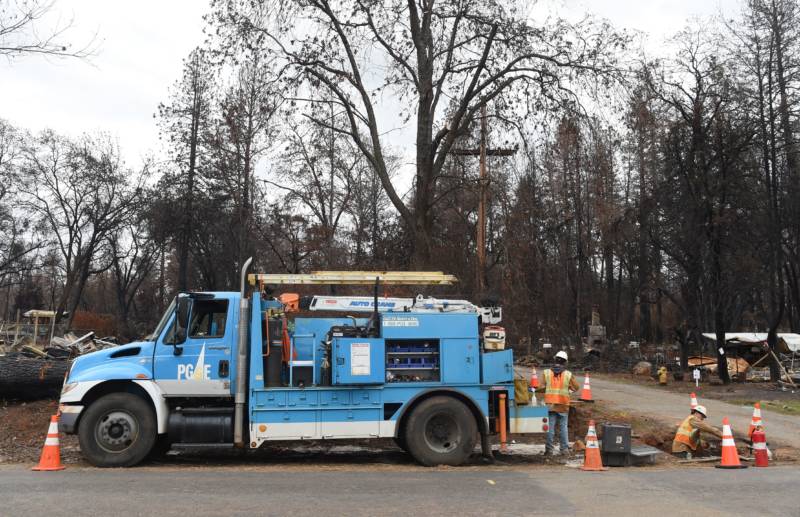Feinberg said he's never seen exceptions like the ones granted in the PG&E case.
“It’s very unusual,” he said. “There may be a very good reason. But the idea that a very small number can get judicial review, but everybody else is bound by the administrator's determination, is rare.”
Court appeals in this type of bankruptcy case are often restricted to allow the trustee to process claims more efficiently, said Jared Ellias, a bankruptcy law professor at UC Hastings.
“If you have lots of appeals, that can slow everything down to a crawl, and people can end up waiting years to get paid,” Ellias said. But, he added, “The setup procedures should be the same for everybody, not just the people who are sophisticated enough to represent their own interests."
Judicial review is rarely used, Ellias noted. But, he said, having the right to appeal does offer claimants more leverage.
"My strong hope is that it won’t matter. If it does matter, it probably works in favor of the VIP fire survivors."
The very small group of individuals granted the right to appeal — largely because they raised concerns about the process — includes Debra Grassgreen, a bankruptcy attorney, and her husband, who lost their home in the 2017 Atlas Fire. Grassgreen has served on the team representing The Baupost Group, a hedge fund, which is set to reap a large profit from PG&E's bankruptcy.
Eric and Julie Carlson, who lost their home in the 2017 Tubbs Fire, and Camp Fire survivor Mary Kim Wallace are the only other individuals granted the right to seek a court review.
"The only thing that makes you different from 70-some-odd or 80,000 other victims ... is that you complained that there was no access to a court if you were not satisfied with what the trustee determines," Judge Dennis Montali told Wallace in a hearing last week.
Under the terms of the fire victims' trust agreement, unsatisfied claimants can ask mediators to review award determinations. But the trustee has the power to override those decisions. Aside from those granted the court review exception, most fire victims will not be able to appeal to an outside court.
For months, some claimants have lobbied the Tort Claimants Committee (TCC), the group representing fire survivors in the case, to push for judicial review for all victims or, at the very least, to ensure that claimants are fully aware they won't have the right to appeal.
When KQED asked why the group did not advocate for this, a TCC attorney declined to comment.
One fire survivor is now attempting to secure the right to judicial review for all of the approximately 6,000 survivors who rejected the deal when they voted on it this spring. The vote to reject, argues Camp Fire survivor Theresa Ann McDonald, constitutes an objection similar to those brought by the parties who now have access to a court appeal.
The judge has asked PG&E, the TCC and the trustee to weigh in on McDonald's request.

